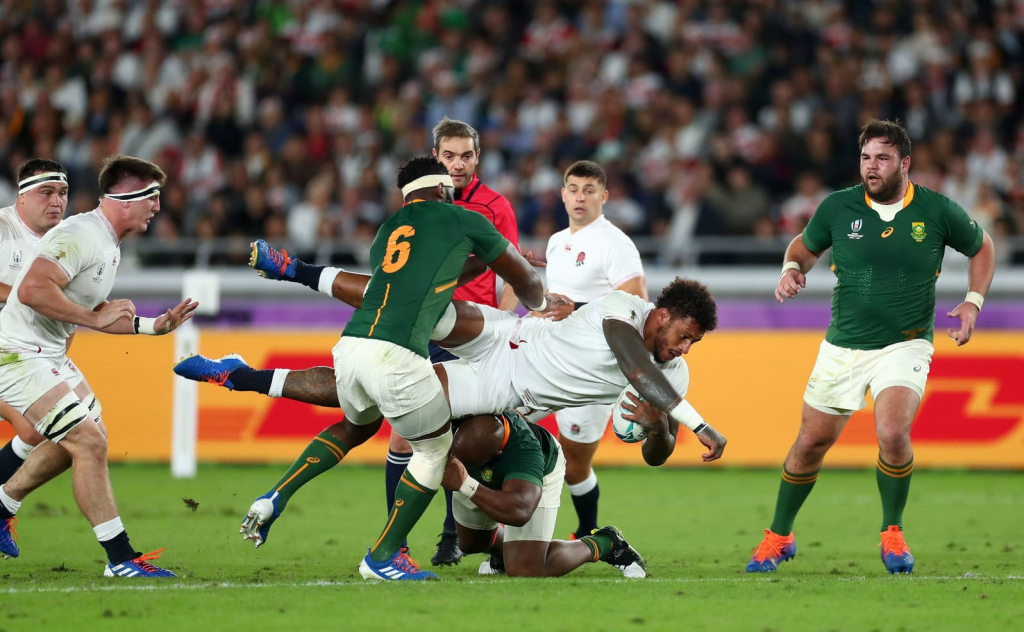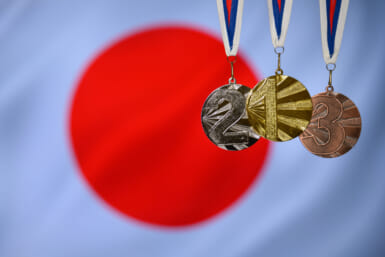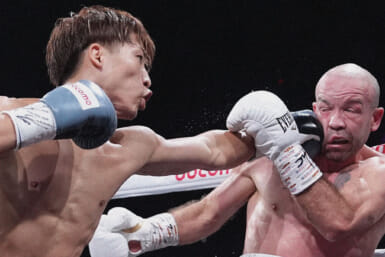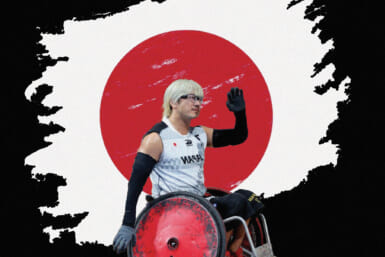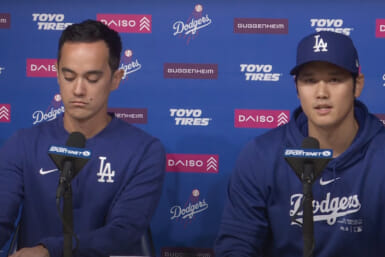South Africa convincingly defeated England 32-12 on Saturday to claim their third World Cup, equaling New Zealand’s record for most tournament wins. They also became the first side to be crowned champions despite having lost a game earlier in the competition. For the English, it was a hugely disappointing evening after their heroics against the All Blacks a week prior. Their performance was nervy and underwhelming but that shouldn’t take away from the brilliance of the Springboks.
The men in green and gold dominated from the get-go, outclassing their opponents in almost every department. The victory was secured thanks to the boot of the nerveless Handré Pollard and tries from Makazole Mapimpi and Cheslin Kolbe. Seeing Siya Kolisi, South Africa’s first-ever black captain, lift the trophy felt like an iconic image that will be remembered forever. It was a fitting way to end what has been a magnificent tournament. Here we take a look back at 20 of our favorite games, moments and stories from the past few weeks.
20 A Japanese Welcome
Shortly after arriving in the country, the Welsh team were treated to a rendition of their national anthem Hen Wlad Fy Nhadau by some 15,000 fans at a stadium in Kitakyushu. Schoolchildren in Kashiwa performed the haka for the All Blacks at their hotel and after a training session in front of around 6,000 people in Kagoshima, the Springboks were presented with a variety of gifts including black pork, beef and tuna. This is just a small selection of the greetings the teams received when they first came to Japan.
19 Matsushima’s Hat-trick
The opening night of the tournament was a nervy affair for the hosts. Russia scored the first try and played some good rugby early on. Once the Brave Blossoms started to settle, they looked much better and eventually proved far too strong for the Bears winning 30-10. Kotaro Matsushima was the hero on the night, scoring a hat-trick of tries. The electrifying winger was one of the standout players in the first round with five tries in total, including one in the last minute against Samoa to seal a bonus-point victory.
18 Radradra’s Magic
It was ultimately a disappointing tournament for Fiji, however, at times they played some mesmerizing rugby, causing both Australia and Wales some real problems. Their best performance came against Georgia with Semi Radradra, in particular, in stunning form. He set up three tries, scored two himself, ran for 177 meters, and had five clean breaks. It was arguably the most impressive individual display of the first round.
17 TJ Perenara’s Try
For 35 minutes Namibia went toe-to-toe with the mighty All Blacks and even led for a glorious 185 seconds. In the end, though, the three-time world champions ran away with things and saved the best try until last. The build-up play by New Zealand was truly magnificent and as for Brad Weber’s behind-the-back pass, that was a thing of beauty. TJ Perenara finished things off, winning the International Rugby Players Try of the Year.
16 C’est Magnifique from Ollivon
While TJ Perenara’s try was the most pleasing on the eye, given the occasion and the opponents, many observers consider Charles Ollivon’s effort against Wales in the quarter-finals as the try of the competition. A fantastic break that included passes between Virimi Vakatawa, Romain Ntamack and Antoine Dupont led the French from one end of the pitch to the other. Ollivon went over and Les Bleus looked in control. They would have probably made the semi-finals had it not been for Sébastien Vahaamahina’s moment of madness in the second half.
15 Springboks 50-meter Rolling Maul
In the end it was a game too far for Japan. There was much excitement going into the quarter-final clash with the Springboks, but the South African side were simply too smart and physically too strong for the hosts. Player of the match Faf de Klerk effectively ended it as a contest with the second try of the game. It came from an astonishing 50-meter rolling maul that was power-play its finest. “It’s absolute precision. It’s surgical,” was how the commentator described it.
WelshRugbyUnion: RT WelshRugbyUnion: An example of just how much the people of Japan have made #RWC2019 an unforgettable tournament.
Tomoko and her sons have followed Wales around the country since we arrived in Kitakyushu almost two months ago.
— ItsAllRugby (@ItsAllRugby_com) November 1, 2019
14 Tomoko’s Letter
It was great to see the enthusiasm shown by Japanese fans for various different teams throughout the competition. From the outset, it was clear how much the tournament meant to locals. One supporter named Tomoko even penned a letter in English to the Welsh side thanking them for “giving me a dream.” On Twitter, the Welsh Rugby Union described it as “An example of just how much the people of Japan have made #RWC2019 an unforgettable tournament.”
13 All Blacks Batter Ireland
Wales were fortunate against France, South Africa convincing against Japan and England were excellent against Australia, however, the best performance of the quarter-final weekend undoubtedly came from New Zealand who battered Ireland 46-14. Beauden Barrett was the standout player for the magnificent All Blacks. As for Ireland, it was a flat display and a sad way to go out for coach Joe Schmidt and captain Rory Best. The latter was given a guard of honour by the Kiwis after the game.
An out of this world good luck message from @esa astronaut @astro_luca to @Federugby team.
The rugby mad Italian fan will get to watch #RSAvITA from the International Space Station thanks to a special broadcast feed produced by World Rugby on Friday. #RWC2019 pic.twitter.com/E5NjGOYz3R
— Rugby World Cup (@rugbyworldcup) October 3, 2019
12 A Message from Space
Prior to Italy’s clash with South Africa, captain Sergio Parisse exchanged messages with astronaut Luca Parmitano. World Rugby provided a special feed for the die-hard fan so he could see the match, making it the first time a game from the tournament had been broadcast in space. He will have no doubt been a little disappointed with the performance of his side as the Springboks easily defeated the Azzurri 49-3. Parisse, playing his fifth World Cup, won his 142nd and possibly last cap for his country as their final game against the All Blacks was canceled.
11 Stand Up for the Japanese
An extremely popular host nation, Japan became most people’s second team in the tournament not only because of the exciting brand of rugby the side played, but also due to the warmth and hospitality of the locals, particularly the volunteers. Many visiting supporters could be seen with temporary Hinomaru tattoos and hachimaki bandanas. Even after losing to the Brave Blossoms, Ireland fans would often sing “Stand Up for the Japanese,” as a show of appreciation for the hosts. It was great to see.
#Ireland to give warm welcome to #Japan rugby fans for Ireland v Japan match in Dublin on 21 Nov 2020 @IrishRugby @ITAATweets @JATATokyo @jtbtnttravel @Travel_HIS @JAL_Official_jp @FlyANA_official @TourismIreland @Failte_Ireland @MainichiRugby @ntv_rugby @nikkei_rugby @JRFUMedia pic.twitter.com/w5a5rnGsRY
— Ambassador of Ireland to Japan (@IEAmbJapan) November 4, 2019
10 An Early Heavyweight Contest
The most eagerly anticipated encounter of the first round came on the opening weekend with New Zealand taking on South Africa. It didn’t disappoint. The Springboks got off to a bright start, but it was the All Blacks who stole the initiative in the first period following a devastating five-minute spell in which they scored two tries. South Africa threatened to get back in the game in the second half, but ultimately the Kiwis defense proved too strong as they held out for a 23-13 win.
9 Lopez Seals it for France
On the same day that New Zealand beat South Africa, France and Argentina played out a game that was even more exciting. Les Bleus were wonderful in the first half racing away to a 20-3 lead thanks to tries from Gaël Fickou and Antoine Dupont. The Pumas fought back brilliantly in the second with Guido Petti Pagadizábal and Juliàn Montoya both going over. A Benjamín Urdapilleta penalty gave them the lead for the first time before a left-footed drop-goal from Camille Lopez restored the French lead. Emiliano Boffelli missed a long-range penalty for the Argentineans at the end of what was a pulsating clash.
“An 86-year-old local woman woke up in her home on Sunday pretty confused about what to do. A few hours later, she had a house full of Canadian rugby players in there helping her out.” https://t.co/3fNDxs2nMM #RWC
— Tokyo Weekender (@Tokyo_Weekender) October 15, 2019
8 The Canadians Clean Up
Both Canada and Namibia knew their only realistic chance of a victory in this World Cup was when they faced each other. The cancelation of their game due to Typhoon Hagibis was, therefore, a big blow, yet rather than show any frustration the two teams decided to do something positive. Canada helped with recovery efforts in Kamaishi by shoveling mud, moving furniture, and clearing debris before spending time with the locals. Namibian players, meanwhile, took to the streets of Miyako in Iwate to greet fans.
7 Manu Returns
A few months ago Nasi Manu was too weak to walk up the stairs to watch a game of rugby, never mind play in one. Diagnosed with testicular cancer, he went through months of chemotherapy which meant he had to miss all of last season and most of this. In Tonga’s opening match against England, the 31-year-old made an emotional return for his country coming off the bench to rapturous applause at the Sapporo Dome. In December last year his teammates at Benetton Treviso all shaved their heads in a show of support for the popular player.
The sight of Australia’s Christian Lealiifano hugging his son after the England game was another endearing image from the tournament. Three years ago, he was diagnosed with testicular cancer and told he may never play rugby again.
A touching moment between Nasi Manu and his family after his first match at #RWC2019. Incredible the adversity he has overcome and great to see him out on the pitch for #ENGvTGA pic.twitter.com/BmarWJcJgX
— Rugby World Cup (@rugbyworldcup) September 22, 2019
6 A Thriller in Tokyo
One of the most exciting games of the pool stages took place at Tokyo’s Ajinomoto Stadium with Wales just edging past Australia 29-25. Right from the off the game was played at a frantic pace with two of the strongest teams in the world throwing everything at each other. Wales were the more impressive side in the first half, powering into a 23-8 lead thanks to tries from Hadleigh Parkes and the excellent Gareth Davies. Australia hit back in the second with Dane Haylett-Petty and captain Michael Hooper both going over. It led to a thrilling finish with Wales just about hanging on.
5 Uruguay Upset Fiji
Played at the Kamaishi Recovery Memorial Stadium in a city that was left devastated by the 2011 Tsunami, Uruguay produced what was at the time, the biggest shock of the tournament, dramatically beating Fiji 30-27. The only amateur team to appear at the 2015 World Cup, they had a pack that was 74 kilograms lighter than their opponents yet still managed to compete upfront. Captain Juan Manuel Gaminara struggled to hold back his tears in the post-match interview. “I’m really proud of my country,” he said. “We’re not the biggest, we’re not the tallest but we came here to win…. You saw the passion.”
The "Sensation in Shizuoka" plus highlights of the upsets and top matchups from week two of #RWC2019 action. https://t.co/99W0Ta9UcZ
— Tokyo Weekender (@Tokyo_Weekender) September 30, 2019
4 Japan Stun Ireland
A few days after Uruguay’s surprise win Japan caused an even bigger upset defeating Ireland, ranked number two in the world at the time, 19-12 in what quickly became known as the “Sensation of Shizuoka.” This was no smash-and-grab. The Brave Blossoms thoroughly deserved the victory and had it not been for a wonderful tackle from Keith Earls on try-scorer Kenki Fukuoka at the death, the score-line could have been more convincing. Not quite as big a shock as the “Miracle of Brighton” four years earlier, but this was a more accomplished display that suggested Japan were becoming a real force in the game.
3 England Dethrone the All Blacks
After laying down a marker with V-shape formation in front of the haka, England produced 80 minutes of sensational rugby against the most feared team on the planet. In the end, the 19-7 score-line flattered the mighty All Blacks who were on the back-foot for most of the game. It was arguably England’s finest performance at a World Cup, better than anything the victorious 2003 side produced. The words of Wales coach Warren Gatland, however, proved prophetic. “We have seen in previous World Cups that teams sometimes play their final in semi-finals and don’t always turn up for a final.”
Rugby World Cup 2019 has captured the hearts and minds of fans across the country.
Japan v Scotland in Yokohama received a record domestic TV audience in Japan. #RWC2019 pic.twitter.com/4vbiLOaDyT
— Rugby World Cup (@rugbyworldcup) October 15, 2019
2 Japan reach the Knockout Stages
Less than 24 hours after Typhoon Hagibis had swept through the country leaving a trail of destruction, the Brave Blossoms produced some memorable rugby against Scotland on an emotionally charged night in Yokohama. Kenki Fukuoka was the player of the match, going over the line twice, though it was Keita Inagaki’s brilliantly worked try that will live longest in the memory. Japan were incredible in the first 40 minutes. Scotland came back strongly in the second half, but the hosts’ defense was resolute. The noise was deafening as they saw the victory out and won the group. It was a truly wonderful occasion.
1 Kolisi Lifts the Web Ellis Cup
“When I was a kid all I was thinking about was when I was getting my next meal,” said Siya Kolisi in the post-match interview shortly before he lifted the famous Web Ellis trophy. Coming from the poor township of Zwide, his teenage parents didn’t have enough money to take care of him, so he was brought up by his grandmother who made a living by cleaning kitchens. Born on June 16, 1991, a day before the repeal of apartheid law, he was too young to remember the iconic moment in 1995 when Nelson Mandela passed the trophy to captain Francois Pienaar. In 2007, as his family were unable to afford a TV, he watched from a tavern as skipper John Smit linked arms with South Africa’s second president Thabo Mbeki. On Saturday, all eyes were on the 28-year-old flanker as he held the cup aloft. With his wife, children and father looking on in the stands, it was an emotional scene. “We are really grateful to have our families here and all I want to do is to inspire my kids and every other kid in South Africa,” said Kolisi. “I never dreamed of a day like this at all.”
Feature photo by Clive Rose – World Rugby via Getty Images
Updated On November 7, 2019

